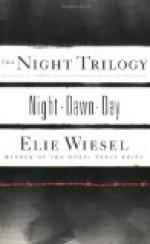But now that step she knew so well is
heard.
Siddartha comes, filled with unselfish
love
Until his face beamed with celestial light
That like a holy halo crowned his head.
Gently he spoke: “My dearest
and my best,
The time has come—the time
when we must part.
Let not your heart be troubled—it
is best.”
This said, a tender kiss spoke to her
heart,
In love’s own language, of unchanging
love.
When sweet Rahula stretched his little
arms,
And cooing asked his share of tenderness,
Siddartha from her bosom took their boy,
And though sore troubled, both together
smiled,
And with him playing, that sweet jargon
spoke,
Which, though no lexicon contains its
words,
Seems like the speech of angels, poorly
learned,
For every sound and syllable and word
Was filled brimful of pure and perfect
love.
At length grown calm, they tenderly communed
Of all their past, of all their hopes
and fears;
And when the time of separation came,
His holy resolution gave her strength
To give the last embrace and say farewell.
And forth he rode,[2] mounted on Kantaka,
A prince, a loving father, husband, son,
To exile driven by all-embracing love.
What wonder, as the ancient writings say,
That nature to her inmost depths was stirred,
And as he passed the birds burst forth
in song,
Fearless of hawk or kite that hovered
near?
What wonder that the beasts of field and
wood,
And all the jungle’s savage denizens,
Gathered in groups and gamboled fearlessly,
Leopards with kids and wolves with skipping
lambs?
For he who rode alone, bowed down and
sad,
Taught millions, crores[3] of millions,
yet unborn
To treat with kindness every living thing.
What wonder that the deepest hells were
stirred?
What wonder that the heavens were filled
with joy?
For he, bowed down with sorrow, going
forth,
Shall come with joy and teach all men
the way
From earth’s sad turmoil to Nirvana’s
rest.
[1]In the “Light of Asia” the prince is made to leave his young wife before the birth of their son, saying: “Whom, if I wait to bless, my heart will fail,”—a piece of cowardice hardly consistent with my conception of that brave and self-denying character.
[2]In the “Light of Asia,” the prince, after leaving his young wife, is made to pass through a somewhat extensive harem en deshabille, which is described with voluptuous minuteness. Although there are some things in later Buddhistic literature that seem to justify it, I can but regard the introduction of an institution so entirely alien to every age, form and degree of Aryan civilization and so inconsistent with the tender conjugal love which was the strongest tie to his beloved home, as a serious blot on that beautiful poem and as inconsistent with its whole theory, for no prophet ever came from a harem.




